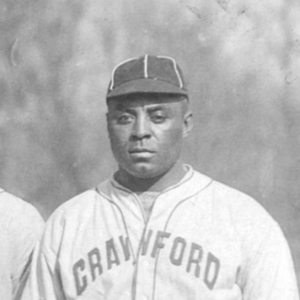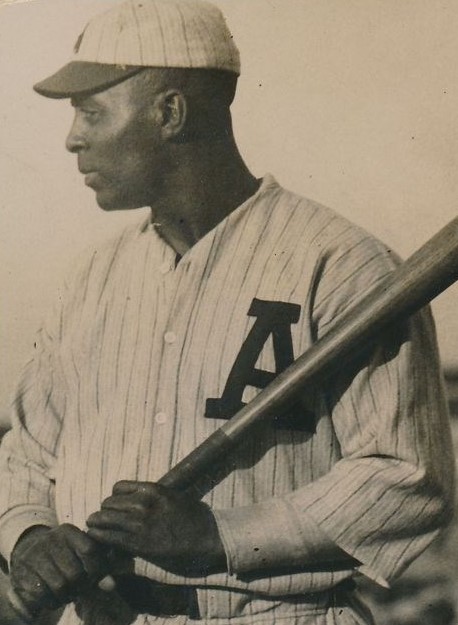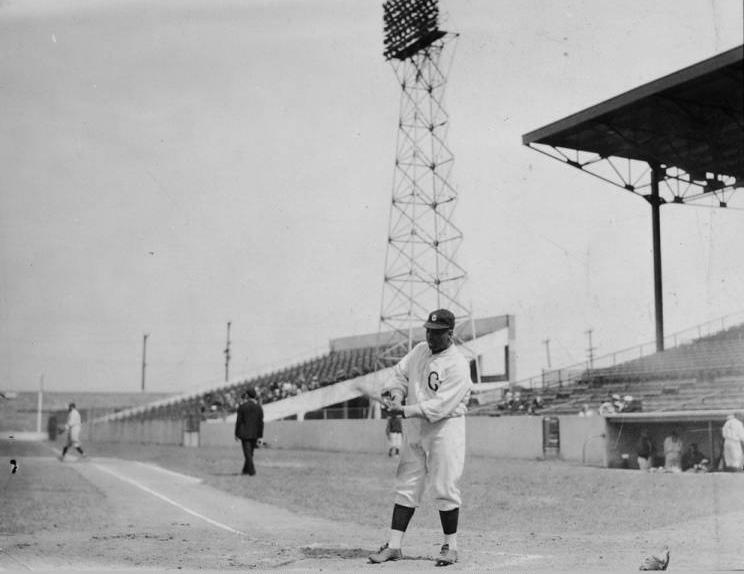
Photo info ...
Credit: Harrison Studio, Public domain, via Wikimedia CommonsView Source
(Oct. 14, 1896-Oct. 6, 1954). Born in Indianapolis, Oscar McKinley Charleston was the seventh of eleven children. His father, Tom Charleston, worked in construction and in his youth had been a jockey. Charleston grew up playing sandlot baseball. He also was a batboy for the , which began his longtime association with the team. He spent 33 seasons starring for or managing the Indianapolis ABCs, Chicago American Giants, Homestead Grays, and other Negro League teams.

In 1912, Charleston lied about his age and enlisted in the U.S. Army. He was a member of the Army 24th Infantry Division, which served in Manila during the Philippine-American War (1899-1913). He dominated opponents as a pitcher-outfielder as part of his U.S. Army unit’s baseball team. After his discharge from the Army in 1915, Charleston signed with Indianapolis ABCs in 1916. With Charleston, Bingo DeMoss, and Taylor’s brothers , Johnny, and “Candy” Jim, the ABCs defeated the legendary Rube Foster’s Chicago American Giants five games to four in the Negro World Series. Charleston played the first game of the Negro National League, which took place on May 2, 1920, in Indianapolis at . The ABCs played against the Chicago Giants and won, 4-2.
Though reliable statistics from the era of the Negro Leagues are scarce, it is known that Charleston played in over 1,000 games with a batting average near. 350. In 1921-1922, as a rookie in the Cuban winter leagues that featured numerous Major League ballplayers, the fleet centerfielder hit opposing pitchers at a .405 rate. A five-game exhibition series against the St. Louis Cardinals in 1922 produced five Oscar Charleston home runs. John McGraw, the New York Giants Hall of Fame manager, was so impressed he attempted to sneak the Hoosier into the National League posing as a Cuban. The ruse failed.

Retired from the Negro Leagues in 1945, Charleston spent several years as a baggage handler for the Pennsylvania Railroad. He returned to baseball in 1954 as a manager of the famous Negro show team, the Indianapolis Clowns, but was felled by a heart attack or stroke following the 1954 season.
He was buried in Floral Park Cemetery on the westside of Indianapolis. Oscar Charleston Park, a park in the neighborhood, is named in his honor.
The legendary James “Cool Papa” Bell pronounced Charleston the greatest player who ever lived. Charleston’s contributions to the national pastime were recognized through his election to the Baseball Hall of Fame in 1976. Floral Park enhanced his burial site in April 2020 to honor his legacy and contributions to the game.
FURTHER READING
- James A. Riley. The Biographical Encyclopedia of the Negro Baseball Leagues. With Internet Archive. Carroll & Graf Publishers, 1994. http://archive.org/details/biographicalency00rile.
- National Baseball Hall of Fame. “Oscar Charleston .” Accessed February 20, 2026. https://baseballhall.org/hall-of-famers/charleston-oscar.
- Strecker, Geri. “Indianapolis’s Other Oscar: Baseball Great Oscar Charleston.” Traces of Indiana and Midwestern History (Indianapolis), Summer 2012. https://images.indianahistory.org/digital/collection/p16797coll39/id/5620/rec/11.
CITE THIS ENTRY
APA:
Ogden, R. D. (2021). Oscar McKinley Charleston. Encyclopedia of Indianapolis. Retrieved Feb 21, 2026, from https://indyencyclopedia.org/oscar-mckinley-charleston/.
MLA:
Ogden, R. Dale. “Oscar McKinley Charleston.” Encyclopedia of Indianapolis, 2021, https://indyencyclopedia.org/oscar-mckinley-charleston/. Accessed 21 Feb 2026.
Chicago:
Ogden, R. Dale. “Oscar McKinley Charleston.” Encyclopedia of Indianapolis, 2021. Accessed Feb 21, 2026. https://indyencyclopedia.org/oscar-mckinley-charleston/.

Help improve this entry
Contribute information, offer corrections, suggest images.
You can also recommend new entries related to this topic.